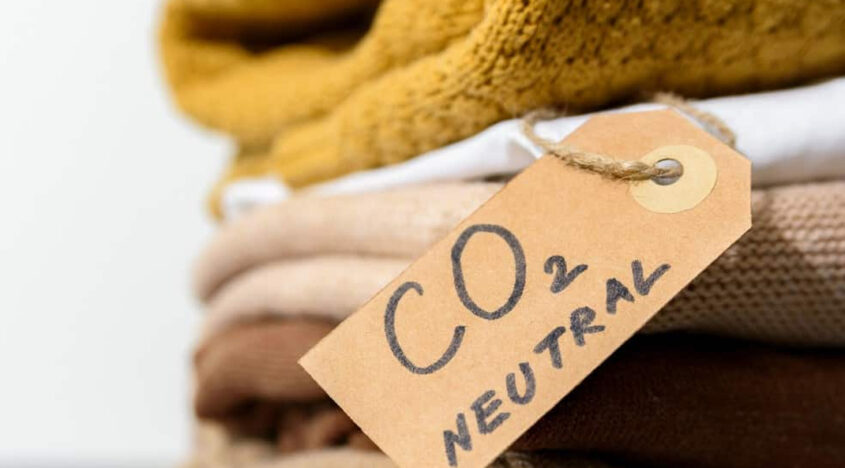Eco-Friendly Fabrics: “Dressing Green, Staying Stylish.

The Eco-Friendly Fabric Revolution: Embracing Sustainable Style
In a world where environmental consciousness is becoming increasingly critical, sustainable fashion choices are at the forefront of change. One of the cornerstones of eco-friendly fashion is the use of sustainable and eco-conscious fabrics. In this blog, we’ll delve into the top 5 best eco-friendly fabrics, exploring their origins, eco-friendly attributes, and why you should consider making them a staple in your wardrobe.
1. Organic Cotton: Nature’s Softness

Origin: Organic cotton, often hailed as the “white gold” of sustainable textiles, is derived from the fluffy fibers of the cotton plant, making it one of the most widely used eco-friendly fabrics globally.
Eco-Friendly Attributes:
- Chemical-Free Farming: Organic cotton is cultivated without synthetic pesticides and fertilizers, promoting soil health.
- Water-Efficient: Organic cotton farming typically uses rain-fed irrigation, reducing water consumption.
- Non-GMO: Organic cotton seeds are not genetically modified, preserving biodiversity.
- Why Choose Organic Cotton: Its softness, breathability, and versatility make it a top choice for comfortable, everyday wear. Choosing organic cotton is a sustainable and responsible decision. Organic cotton is grown without synthetic pesticides or fertilizers, reducing harm to the environment and promoting soil health. Its production typically uses rain-fed irrigation, conserving water resources. Organic cotton also preserves biodiversity, as its seeds are non-genetically modified. Wearing organic cotton is not just about comfort and quality; it’s a conscious choice to support sustainable agriculture and protect ecosystems. By choosing organic cotton, you contribute to a cleaner, healthier planet, making it an eco-conscious and ethical choice for both your wardrobe and the environment.
2. Tencel (Lyocell): Nature’s Elegance

Origin: Tencel, known for its silky and smooth texture, is sourced from wood pulp, primarily eucalyptus, beech, and spruce trees.
Eco-Friendly Attributes:
- Renewable Resource: Tencel is made from sustainably managed forests, promoting tree regeneration.
- Low-Waste Production: The closed-loop manufacturing process recycles water and solvents, minimizing waste.
- Biodegradable: Tencel is fully biodegradable, reducing the environmental impact.
Why Choose Tencel: Tencel, also known as Lyocell, is an exceptional eco-friendly fabric that stands out for its numerous benefits. Derived from sustainably managed forests, it offers a silky and smooth texture, making it a comfortable choice for clothing. What makes Tencel truly remarkable is its closed-loop manufacturing process, which recycles water and solvents, reducing waste and environmental impact. It’s biodegradable, adding to its eco-friendliness. Tencel’s breathability and moisture-wicking properties provide all-day comfort. By choosing Tencel, you’re not only embracing a luxurious and versatile fabric but also supporting responsible forestry and minimizing your fashion’s environmental footprint.
3. Hemp: Nature’s Durability

Origin: Hemp, one of the oldest cultivated plants, is a durable fiber extracted from the hemp plant’s stalk.
Eco-Friendly Attributes:
- Low-Impact Cultivation: Hemp requires minimal water and grows quickly, reducing resource consumption.
- No Pesticides: Hemp is naturally pest-resistant, eliminating the need for chemical pesticides.
- Soil Health: Hemp cultivation improves soil quality, making it a sustainable choice.
Why Choose Hemp: Hemp, a versatile and eco-friendly fabric, should be a top choice for conscious consumers. Its low-impact cultivation, minimal water requirements, and natural resistance to pests make it an environmentally responsible option. Hemp’s durability and breathability result in long-lasting, comfortable garments, reducing the need for frequent replacements. Choosing hemp supports sustainable farming practices, minimizes chemical use, and helps improve soil quality. Additionally, the rapid growth of hemp plants makes it an efficient and renewable resource. By opting for hemp, you not only enjoy quality and comfort but also contribute to a more sustainable and eco-conscious fashion industry.
4. Recycled Polyester: Nature’s Second Chance

Origin: Recycled polyester is produced from post-consumer PET plastic bottles and textile waste, giving new life to discarded materials.
Eco-Friendly Attributes:
- Resource Conservation: Recycled polyester reduces the need for new raw materials, conserving oil and energy.
- Waste Reduction: It diverts plastic waste from landfills and oceans, addressing the plastic pollution problem.
- Lower Carbon Footprint: The production of recycled polyester typically emits fewer greenhouse gases than virgin polyester.
Why Choose Recycled Polyester: Recycled polyester is a conscious choice for eco-minded consumers. By opting for recycled polyester, you actively participate in reducing plastic waste, promoting resource conservation, and minimizing the fashion industry’s carbon footprint. This innovative fabric gives a second life to post-consumer PET plastic bottles and textile waste, addressing the global plastic pollution crisis. It’s versatile, durable, and adaptable for various apparel and products, making it a sustainable option for everyday use. By choosing recycled polyester, you support a circular economy, contribute to waste reduction, and play a role in fostering a more environmentally responsible fashion industry.
5. Cork Fabric: Nature’s Textured Luxury

Origin: Cork fabric, made from the bark of cork oak trees, primarily in the Mediterranean region, is an innovative and sustainable material.
Eco-Friendly Attributes:
- Renewable Harvest: Cork oak trees are not cut down during harvesting, allowing them to regenerate.
- Biodiversity Protection: Cork forests are essential for wildlife habitats and carbon sequestration.
- Biodegradable and Recyclable: Cork is both biodegradable and recyclable at the end of its life cycle.
Why Choose Cork Fabric: Cork fabric is an exceptional choice for the environmentally conscious consumer. Harvested from cork oak trees in a sustainable manner, it allows trees to regenerate and supports biodiversity. This lightweight and textured material is not only stylish but also durable and biodegradable. By choosing cork fabric, you embrace responsible forestry practices and contribute to the protection of wildlife habitats. It’s a unique, eco-friendly option for accessories, footwear, and more, reflecting your commitment to sustainability and the preservation of our planet’s natural resources.
In Conclusion:
Eco-friendly fabrics like organic cotton, Tencel, hemp, recycled polyester, and cork fabric are not only stylish and comfortable but also environmentally responsible choices. By embracing these fabrics, you contribute to sustainable agriculture, responsible forestry, waste reduction, and biodiversity protection. Make eco-friendly fashion a part of your lifestyle and join the movement to promote a greener, more sustainable future for the fashion industry and the planet.








// Comments are closed //